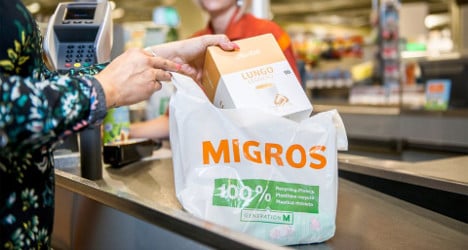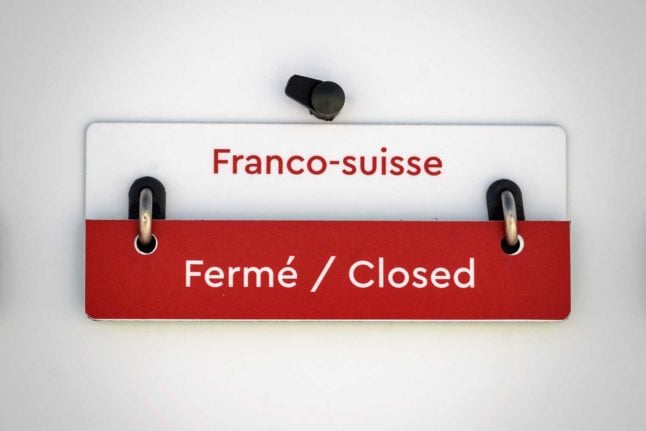On Thursday the upper house of parliament quashed a bill proposing a universal ban on plastic bags across the country, preferring that shops come to a voluntary agreement on the subject.
The proposed ban had already been dismissed by the lower house back in May.
Now the Swiss supermarket giants Migros and Coop have taken matters into their own hands, saying they will start to charge for single-use plastic bags in an attempt to reduce the number used by 80 percent.
In a statement on Thursday, Coop said: “Tests and surveys carried out by Coop show that four out of five customers would give up plastic bags if they had to pay for them.”
As a consequence, from October 24th this year Coop will trial a charge of five centimes per bag in ten of its Zurich shops, ahead of a roll out to 850 stores across the country by spring 2017.
Migros is following suit, rolling out the five-centime charge from November 1st in all its shops.
The supermarket had already been charging for bags in its shops in the canton of Vaud since 2013.
“Customers quickly got used to the change and since, Migros Vaud has been able to considerably reduce its use of plastic bags,” it said in a statement.
Profits from bags sold will go towards external environmental projects, both supermarkets said.
The action by the two supermarkets in is accordance with a voluntary agreement drawn up by the commercial sector which was approved by parliament as an alternative to a total ban.
The agreement applies to single-use plastic bags at the till, not the smaller ones used for fruit and veg.
Back in May, Patrick Marty, spokesman for Swiss commerce organization IG DHS, told The Local that voluntary action on the part of supermarkets would be a better solution anyway.
“In our opinion we don’t need a specific law,” he said.
“If it’s possible to achieve the objectives in a voluntary manner, then a law won’t be necessary. For us, the traders, it’s an effective solution.”
Switzerland lags behind some other countries in Europe on the issue.
Last year the UK banned retailers with more than 250 employees from offering free plastic bags, though customers can still buy them.
And in July this year France formally banned single-use plastic bags although many supermarkets had stopped offering them under a 2002 voluntary agreement.



 Please whitelist us to continue reading.
Please whitelist us to continue reading.
Member comments